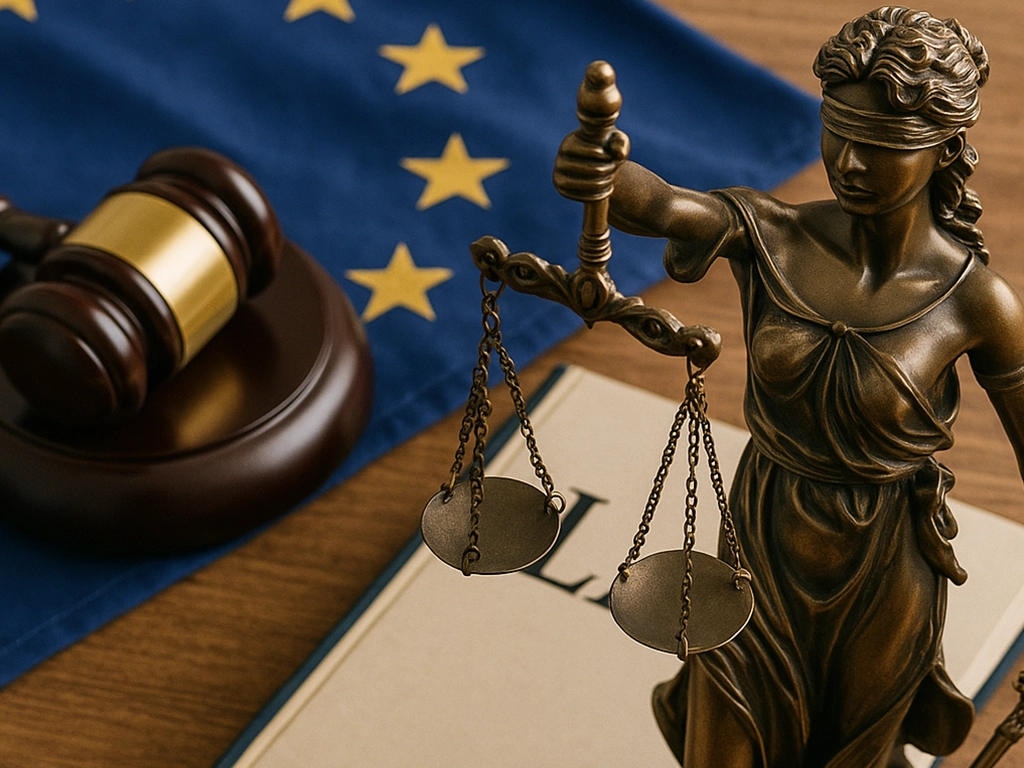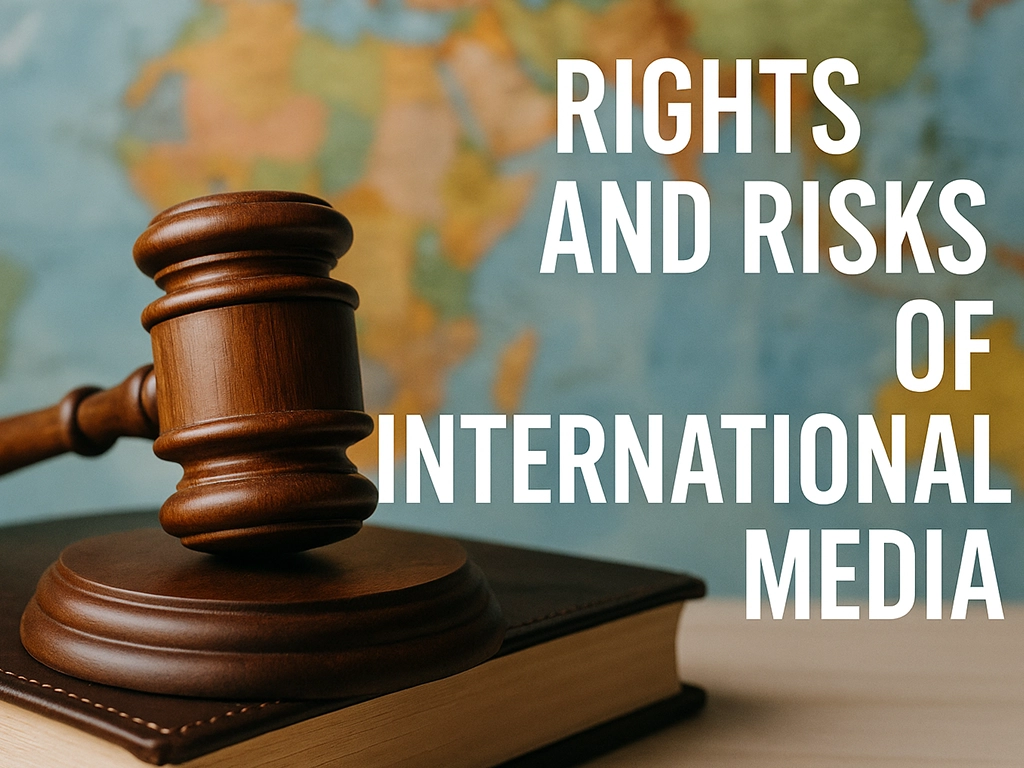Introduction to International Media Laws
In today’s globalised environment, where news and information traverse borders within seconds, it is imperative for journalists and media organisations to possess a comprehensive understanding of the relevant legal frameworks. Permissible conduct in one jurisdiction may be strictly prohibited in another, and overlooking such distinctions can result in legal complications, reputational harm, or even endangerment. International media laws encompass a broad range of topics, including freedom of expression, defamation, privacy, copyright, hate speech, and national security. By navigating these regulations judiciously, media professionals can safeguard both themselves and their sources, while upholding journalistic integrity.
Fundamentally, international media law consists of an intricate network of national legislation, treaties, and case law. While numerous countries formally recognise freedom of speech through constitutional provisions or international accords, the interpretation and enforcement of these rights vary considerably across jurisdictions. The reception of journalistic content—such as articles or photographs—can differ markedly from region to region, and the proliferation of digital publishing platforms increases the complexity of compliance. Consequently, it is essential for media practitioners, particularly freelancers, photographers, and independent journalists, to invest in understanding these diverse legal systems. Such expertise not only mitigates potential risks but also strengthens credibility by reflecting respect for local laws and cultural sensitivities.

Rights Across Jurisdictions
The right to freedom of expression is enshrined in numerous international documents, such as Article 19 of the Universal Declaration of Human Rights and the International Covenant on Civil and Political Rights. These agreements affirm that everyone has the right to hold opinions and to seek, receive, and impart information through any media. However, how these rights are translated into domestic law varies widely. For example, the U.S. Constitution’s First Amendment provides strong protections against government interference in speech and press, while many European countries balance free expression with protections against hate speech and privacy violations. The European Convention on Human Rights, Article 10, states that freedom of expression may be subject to restrictions when necessary in a democratic society to protect public safety, health, morals, or the reputation of others.
Journalists must also consider differences in copyright and fair use laws. A photograph that may be freely reproduced under U.S. fair use provisions could infringe copyright in countries with stricter licensing regimes. Likewise, the concept of “fair dealing” in Canada or the United Kingdom requires a different analysis than U.S. fair use. These subtleties are particularly important for photographers and artists who share or republish creative content internationally. Additionally, privacy laws differ across jurisdictions. The European Union’s General Data Protection Regulation (GDPR) provides individuals with extensive data privacy rights, including the right to request deletion of personal information. In contrast, data protection frameworks in other regions may be less stringent, affecting how personal data collected during reporting is handled and stored.
Another aspect of rights across jurisdictions concerns access to information. Freedom of Information (FOI) laws vary significantly; some countries offer broad rights for the public and journalists to request government documents, while others heavily restrict access. Knowing the scope of these laws helps journalists plan investigations, manage expectations, and use proper channels to obtain official records. USPA supports its members with information about these differences, guiding them to the appropriate legal frameworks for accessing documents legally and efficiently.
Risks and Liabilities in Different Countries
Comprehending legal rights is only one aspect of cross-border journalism; it is equally essential for journalists to be cognizant of the various risks and liabilities associated with publishing internationally. Defamation statutes differ significantly around the world. In the United States, public figures must demonstrate “actual malice” to succeed in defamation claims, whereas many other jurisdictions require only that a statement be false and injurious to reputation. In some countries, defamation constitutes a criminal offence carrying substantial penalties, and legal actions may be employed as tools to deter investigative reporting. Even where defamation remains within the civil realm, courts may award considerable damages, and plaintiffs frequently engage in “libel tourism,” seeking out jurisdictions favorable to their claims.
Blasphemy legislation introduces further complexity. Certain countries impose criminal sanctions for offenses against religion or sacred symbols, while others afford greater latitude for freedom of expression. Satirical or parodic content may enjoy legal protection in numerous Western democracies but face prohibition in states with rigorous blasphemy regulations. Similarly, expressions construed as insulting to heads of state or national icons can result in prosecution in specific regions. Journalists addressing subjects such as religion, monarchy, or national history should remain sensitive to these divergent standards and adapt their practices accordingly.
National security and anti-terrorism laws pose additional challenges. Media professionals reporting on government activities, intelligence affairs, or protest movements must exercise caution to avoid allegations of espionage, incitement, or support for terrorism. In authoritarian contexts, national security provisions are at times broadly interpreted to stifle dissent. Even in established democracies, dissemination of classified military material can invite legal consequences. A thorough understanding of relevant legislation is crucial to ensuring both responsible journalism and the continued ability to serve the public interest.
The digital environment further complicates this landscape, given the borderless nature of online publication. Content hosted in one country may be subject to regulatory frameworks elsewhere; for example, a blog based in Germany may be governed by German hate speech laws, while posts authored by U.S.-based journalists could attract legal repercussions abroad. Judicial directives may also compel global content removal from platforms. This extraterritorial effect highlights the necessity for journalists to research compliance obligations beyond their domestic jurisdictions and to seek local legal counsel when preparing content for an international audience.

Safe Publishing Practices for Cross-Border Reporting
Given the risks, journalists can adopt several best practices to publish safely and ethically. First, always verify information and sources. Cross-border reporting often involves language barriers, cultural differences, and unfamiliar institutions, increasing the likelihood of misunderstandings or misinterpretation. Taking the time to consult multiple independent sources, review official records, and check facts reduces the risk of legal challenges for spreading false information. Working with local journalists or translators can help ensure accuracy and context. Additionally, keep detailed notes and documentation of interviews and research. If you face legal challenges, having clear evidence of your due diligence shows that you acted responsibly.
Second, respect privacy and personal data protection laws. Avoid publishing personally identifiable information without consent, particularly if doing so could lead to harm. Use data anonymisation techniques when referring to private individuals and apply encryption when storing sensitive documents, notes, or communications. Many countries require explicit consent to collect or publish personal data; failure to comply could lead to fines or lawsuits. When in doubt, consult legal advisors or guidelines such as the GDPR or your own national privacy legislation.
Third, be aware of cultural and legal sensitivities. Understand the social norms in the region you’re covering, particularly around religion, monarchy, historical memory, and national symbols. Even if a topic is legal to discuss, insensitivity can lead to social backlash or legal scrutiny. Collaborating with local experts, fixers, or co-reporters can help navigate these pitfalls. When covering protests or conflicts, follow local safety protocols and avoid inadvertently spreading propaganda or incitement.
Fourth, consider your publication channels. Publishing through reputable platforms and utilising robust editorial review processes help catch potential legal pitfalls before content goes live. Peer-review mechanisms can also prevent oversight. When publishing on social media, remember that those platforms’ community guidelines interact with local laws; content can be removed or flagged by authorities. Maintaining separate accounts for personal and professional use can help manage your online presence and avoid unintentional missteps.
Fifth, plan for legal assistance and insurance. Freelancers in particular should consider securing media liability insurance and establishing relationships with legal experts experienced in international media law. Being part of a professional organisation like USPA can also be beneficial. USPA provides members access to legal advice, guidelines, and contacts to help mitigate risks and navigate cross-border legal challenges. In high-risk jurisdictions, journalists may also need to consult with local lawyers who understand regional laws and culture. Legal frameworks change quickly, so staying informed and working with professionals is essential.
How USPA Facilitates Compliance with International Media Laws
The United States Press Agency (USPA) supports its members by providing resources that make navigating international media laws more manageable. For instance, USPA offers regular training sessions and webinars with legal experts on topics such as defamation standards, copyright licensing, data protection laws, and the implications of emerging technologies like AI-generated content. These sessions are designed to help journalists, photographers, and freelancers understand how new legal developments may affect their work. By keeping members informed, USPA empowers them to publish boldly and responsibly without inadvertently violating laws.
Additionally, USPA provides a network of trusted regional contacts and legal advisors. Through the membership directory, journalists can find local fixers, translators, and legal counsel in different countries. This network ensures that members do not operate in isolation. Having a colleague on the ground who knows the local laws and culture can prevent missteps. USPA’s “legal hotline” service further allows members to request on-demand advice from legal specialists when faced with urgent questions about a story’s legality.
USPA membership also includes access to resources like model contracts, license agreements for images and articles, and guidelines for handling ethical dilemmas—everything from protecting whistleblowers to handling graphic content. These guidelines highlight the differences between jurisdictions and provide best practices for cross-border collaboration, ensuring that members stay compliant when working with partners from different countries. The combination of training, networking, and resources helps USPA members to publish internationally with confidence, knowing they have support and legal protection.
Conclusion: Navigating the Complexities of International Media Law
Successfully navigating international media law demands diligence, adaptability, and an unwavering commitment to ethical journalism. It is essential to understand both the rights established by global agreements and national constitutions, as well as the specific regulations implemented by individual countries. Journalists, photographers, and content creators who inform themselves about these legal frameworks are better equipped to avoid legal risks and ensure their work remains fair, accurate, and effective. Adhering to responsible publishing practices—such as thorough source verification, respecting privacy, and seeking guidance from legal professionals—safeguards both media practitioners and their audiences. Collaborating with organisations like the United States Press Agency further strengthens this safeguard by providing specialised training, access to a comprehensive international network, and valuable legal resources. For anyone producing content for a worldwide audience, USPA membership represents a prudent investment, empowering members to uphold press freedom and effectively manage the complex legal landscape of today’s media environment.
